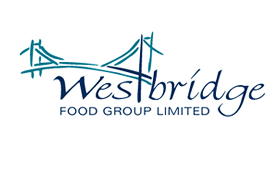
The cost of debt is one of the primary concerns of any company with debt. Interest rate risk arises from changes in interest rates. Having debt at variable interest rates such as Base Rate or LIBOR can lead to increased costs if these interest rates increased. The majority of SMEs have limited financial capacity to bear this risk.
Increased interest costs can significantly affect the financial health of a company with additional volatility in the Income Statement and cash flow of the business. The interest covenant ratios/debt service coverage ratios specified in your facility agreement with the bank could be breached. Businesses entering into loans with a variable rate that was low at the time could very well find it unsustainable with higher interest rates. Uncertainty over future interest rates can also make it difficult for businesses to confidently forecast future cash flows.
Interest rate risk can be managed through interest rate hedging. It is not possible to accurately predict interest rates in the future and interest rate hedging does not aim to do this. Hedging provides less uncertainty, allowing businesses to plan better with a greater level of visibility over their future interest payments.
When entering into a loan agreement with a bank, there is usually a choice between variable rates of interest and fixed rates of interest. There is also a choice for a mixture of both.
If your loan is on a variable rate of interest such as Base Rate or LIBOR, you could enter into hedging products such as an interest rate swap or interest rate cap. These products will provide protection against rising interest rates. Each product has different characteristics and we will be able to explain the risks and benefits in further detail.
Fixed rates of interest (often called Fixed Rate Loans) also have associated risks and as is also the case with the hedging products mentioned above, it is important to lock in at fair market levels.
The hedging process will usually begin with your bank providing a variety of hedging options (such as swaps, caps and Fixed Rate Loans) on a non-advisory basis. You will then need to consider the different options available and decide which hedging product is best suited for your business. The final stage of the hedging process will usually involve a live recorded call where your hedge will be locked in at the rate/premium at the time.
Our role at Vedanta Hedging is to help you understand your interest rate risk and advise on how to manage that risk as effectively and efficiently as possible.
The hedging process can appear daunting and complex if the management has not undertaken hedging previously. The hedging presentations provided by banks often contain a significant amount of information covering a variety of products. Vedanta Hedging can help you review and understand banks’ hedging proposals.
We have worked with several companies and assisted with hundreds of transactions across a wide range of banks. Using statistical modelling and quantitative analysis, we develop the optimal hedging strategy based on your business’s requirements and risk appetite.
Our team has detailed working knowledge and experience of hedging instruments, and we use the same ‘market-fed’ pricing tools used by the banks. Our advice is objective and any negotiations with the bank will always be aimed at achieving the best results for you. We will ensure that the banks do not make excessive ‘hidden’ profits on the interest rate hedging instruments that are agreed, whether it is a new transaction or the restructure of an existing hedge. For the majority of our clients, our benchmarking service alone serves to save multiple times the investment they make in our services.
We will be assisting you throughout the entire process, from reviewing the bank’s initial hedging proposals to being present on your live trade call. We are independent hedging advisors and our aim is to add value and minimise the information asymmetry between the bank and yourself.
Independent hedging involves entering into a hedge with a bank that you do not have lending with at present. This type of hedging is becoming increasingly popular and we are currently working with a panel of banks that offer this service.
You may want to explore this option if your lending bank is unable to offer hedging or if you would like an interest rate hedge with specifications different to your current lending. It is very unlikely that your lending bank will allow you to hedge for an amount and tenor that is larger and longer respectively than your debt. An independent hedge will provide you with a product tailored to your current and future requirements. Entering into a hedge with a new bank can also open the doors for new borrowing opportunities.
“Vedanta Hedging have a deep understanding and knowledge of complex derivatives, and have been invaluable in advising us on hedging. I have no hesitation in recommending Abhishek and Vedanta Hedging to other hoteliers / property companies for any hedging related advice.” – Aly Kassam, Crimson Hotels
We are very thankful to Mayad and Abhishek for all their assistance and support throughout our £230m refinancing. They have both been an absolute pleasure to deal with and it has been very comforting for us all to know throughout that we have been in the hands of two extremely capable individuals. Their understanding of our requirements as property investors and subsequent report on hedging strategy gave us the comfort we needed to make an informed decision on our derivatives. – Andrew Bull, Camden Market



























Call us today on 020 7183 2277 or click the button below to contact Vedanta Hedging.
Get In Touch